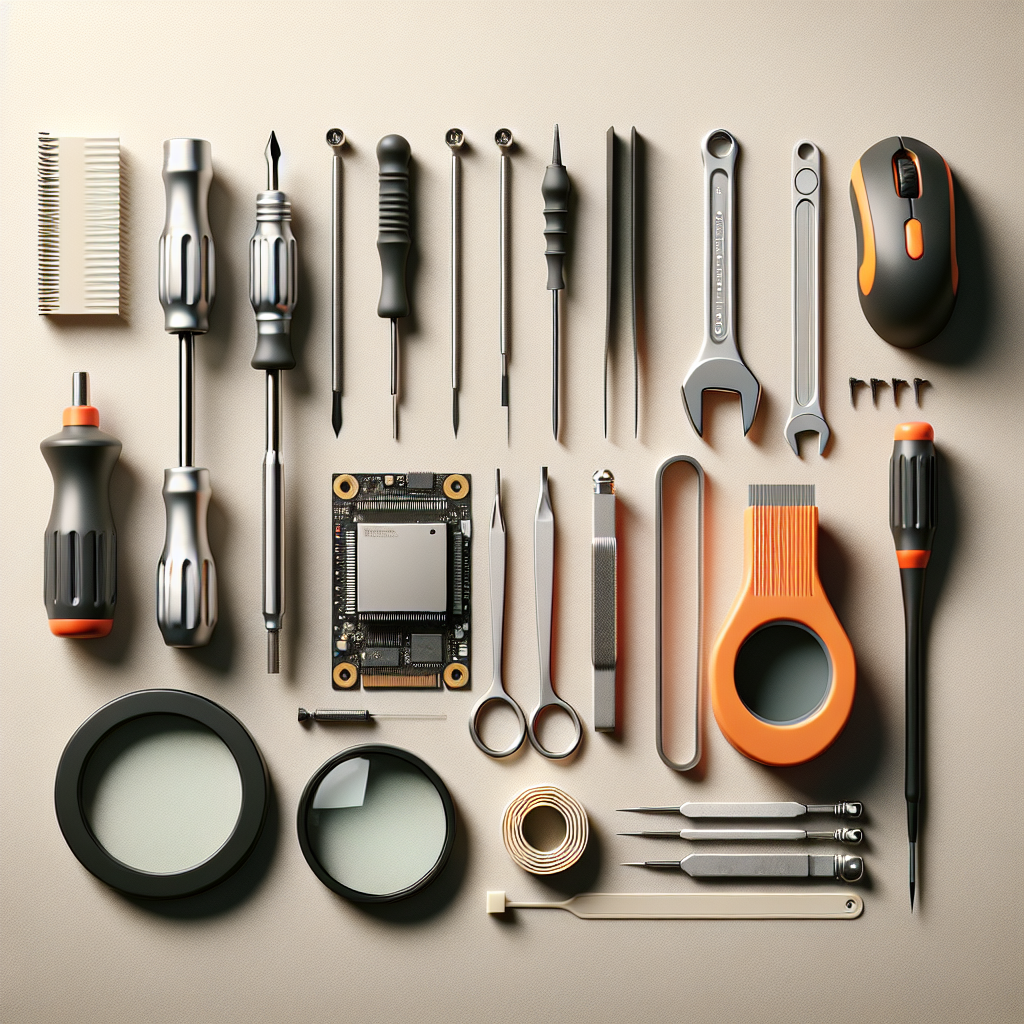Building a computer from scratch is a rewarding experience that not only enhances your technical skills but also allows you to tailor your machine to your specific needs. Whether you are a gamer, a graphic designer, or just someone who loves tech, constructing your own PC can be highly satisfying. However, the process can seem daunting without the right tools. Below, we will cover all the essential tools you need to make your PC building journey smooth and efficient.
Basic Tools Required
Before diving into the process, let’s list out the basic tools you'll need:
| Tool | Purpose |
|---|---|
| Phillips Head Screwdriver | For securing screws and components. |
| Antistatic Wrist Strap | To prevent electrostatic discharge. |
| Thermal Paste | For aiding heat transfer from the CPU. |
| Needle-Nose Pliers | For pulling, gripping, and holding small parts. |
Phillips Head Screwdriver
A Phillips head screwdriver is indispensable for securing screws on various components like the motherboard, power supply, and drives. Ensure you get one that has a magnetized tip to hold screws in place during installation.
Antistatic Wrist Strap
Electrostatic discharge can ruin sensitive electronic components. An antistatic wrist strap is crucial to prevent such accidents. Simply strap it around your wrist and attach the clip to a grounded metal part.
Thermal Paste
Applying thermal paste is essential for effective CPU cooling. Ensure you get high-quality thermal paste for optimal heat conductivity between your CPU and the heat sink.
Needle-Nose Pliers
These are invaluable for manipulating small screws and parts in tight spaces. They also come in handy for tasks like removing jumpers and plugs.
Advanced Tools Required
For those looking to go a step further, these advanced tools can be beneficial:
| Tool | Purpose |
|---|---|
| Multimeter | For checking electrical connections. |
| Cable Ties | For managing cables efficiently. |
| Compressed Air | For cleaning out dust from components. |
| Thermal Grease Cleaner | For cleaning off old thermal paste. |
Multimeter
A multimeter is great for diagnosing electrical issues. It helps in confirming whether power is flowing correctly through your components, which can be very useful for troubleshooting.
Cable Ties
No one likes a messy build. Use cable ties to organize cables neatly, ensuring proper airflow and easier troubleshooting down the line.
Compressed Air
Keeping your components clean is crucial for longevity. Compressed air helps you to blow out dust and debris from places that are hard to reach.
Thermal Grease Cleaner
Before reapplying thermal paste, it’s essential to clean off the old paste properly. Thermal grease cleaners ensure that you’re starting with a clean surface.
Optional Tools
If you’re aiming for the utmost perfection in your build, these optional tools can be very helpful:
| Tool | Purpose |
|---|---|
| Hex Driver Kit | For handling hex screws. |
| Rubber Grommets | For protecting cables and reducing noise. |
| Anti-Vibration Mounts | For reducing noise from fans and drives. |
| Heat Gun | For heat-shrink tubing applications. |
Hex Driver Kit
Some screws in your PC might use hex heads, so having a comprehensive hex driver kit can be quite useful for completing your build without any hiccups.
Rubber Grommets
Rubber grommets protect your cables from sharp edges, and they also help in reducing vibration and noise, contributing to a smoother and quieter build.
Anti-Vibration Mounts
These mounts can be particularly useful if you’re installing hard drives or fans. They minimize vibrations, thus reducing mechanical noise.
Heat Gun
If you want your build to be pristine, a heat gun helps in neatly applying heat-shrink tubing over your connections, making everything look cleaner and more professional.
Software Tools
While hardware tools are critical, let’s not forget about the software tools that can assist you in the build process:
- BIOS Update Utility: Essential for updating BIOS to ensure compatibility with new hardware.
- Benchmarking Software: To evaluate the performance of your built PC.
- Hardware Monitor: For tracking temperature, voltage, and fan speeds.
- Disk Cloning Software: For easy OS and software transfer from old drives.
BIOS Update Utility
Updating BIOS is sometimes necessary for hardware compatibility. Make sure you have the right utility to update your BIOS easily and safely.
Benchmarking Software
Use benchmarking software to test the performance of your new build. It helps in ensuring that your PC is operating efficiently.
Hardware Monitor
These tools allow you to monitor critical system parameters like temperature and voltages, helping you to catch issues before they become problematic.
Disk Cloning Software
If you’re migrating from an old machine, disk cloning software can save you a lot of time and hassle by replicating your OS and software setup.
Conclusion
Building a computer from scratch can be a fulfilling endeavor, but the importance of having the right tools cannot be overstated. By preparing yourself with both basic and advanced tools, and even some optional ones, you ensure that your build process will go as smoothly as possible. Happy building!

